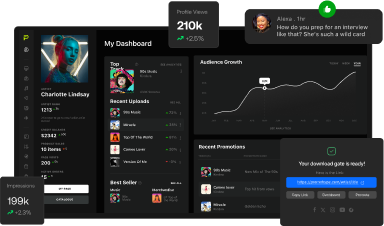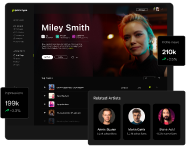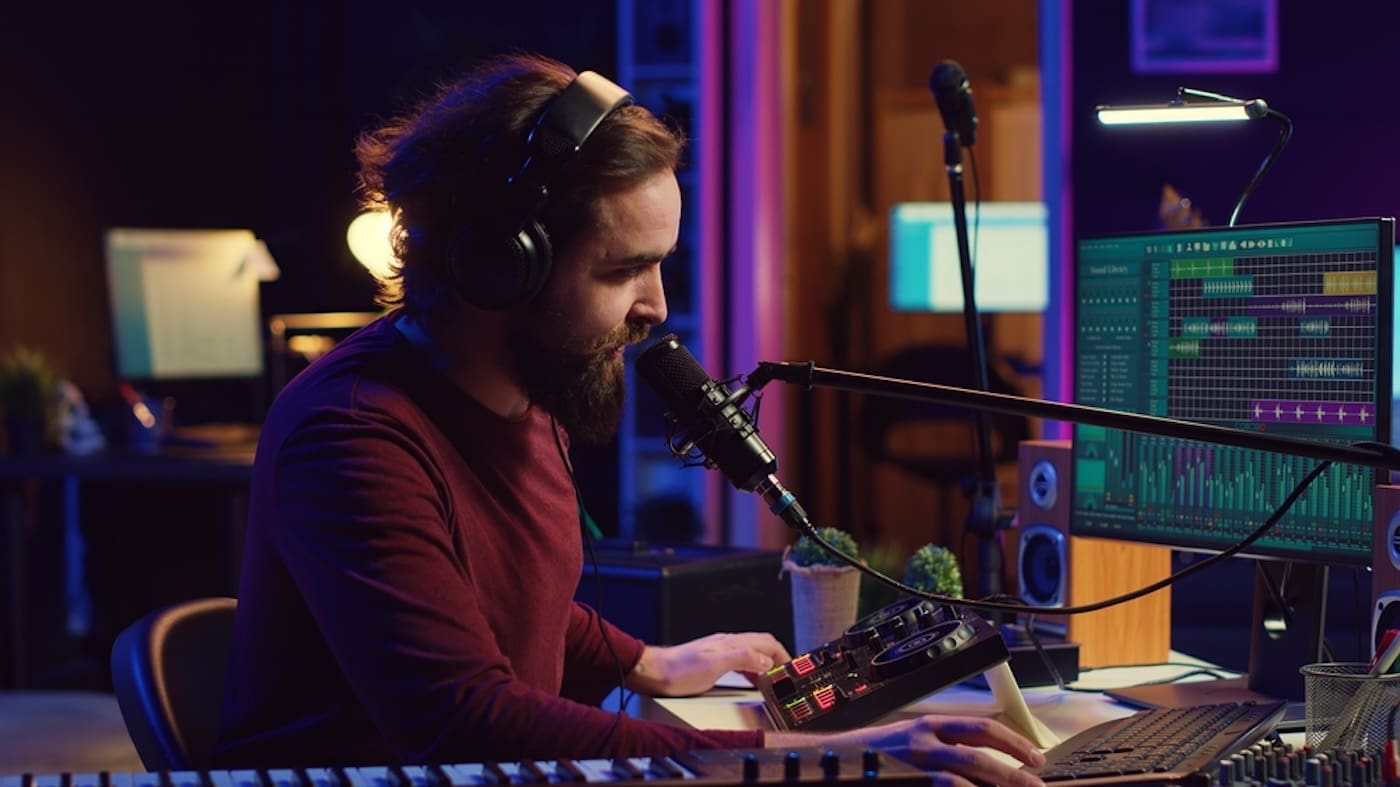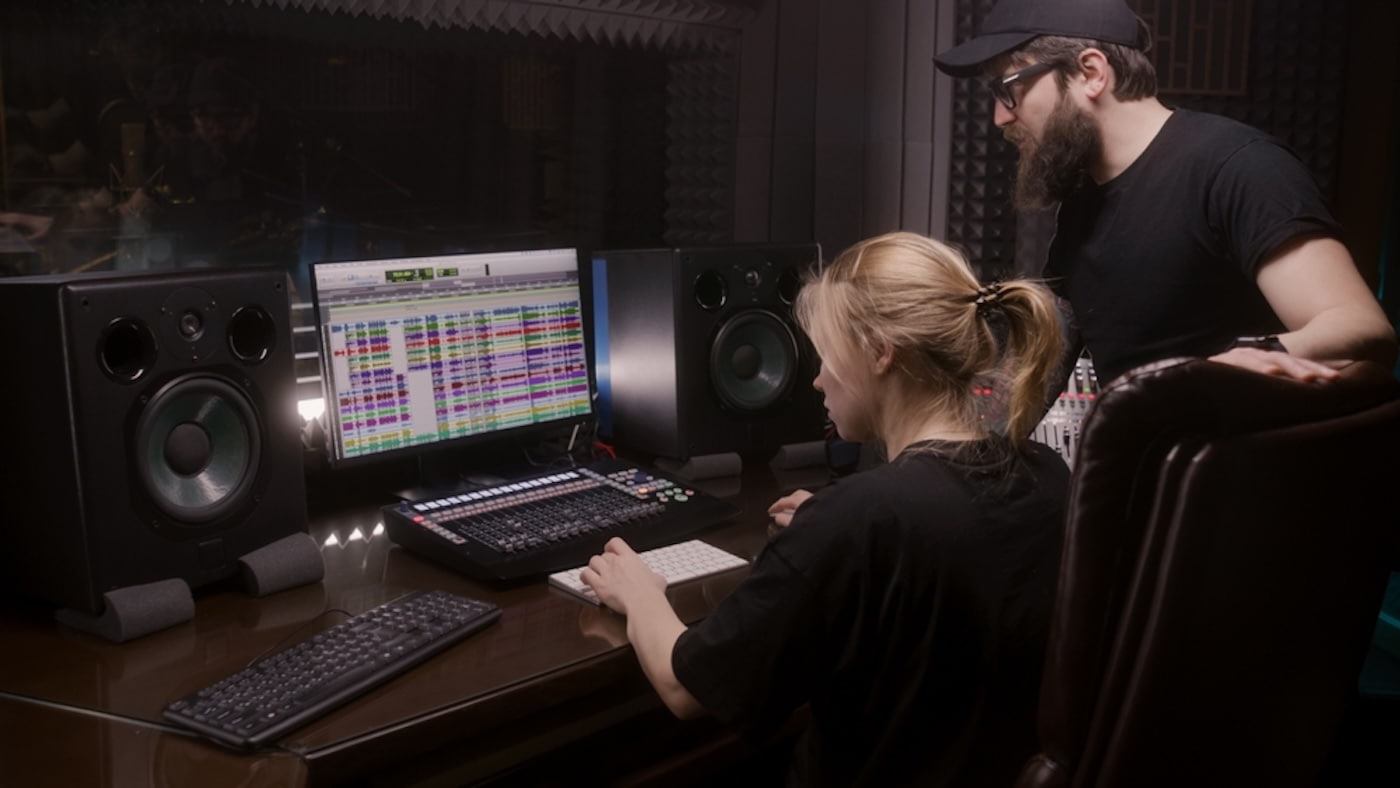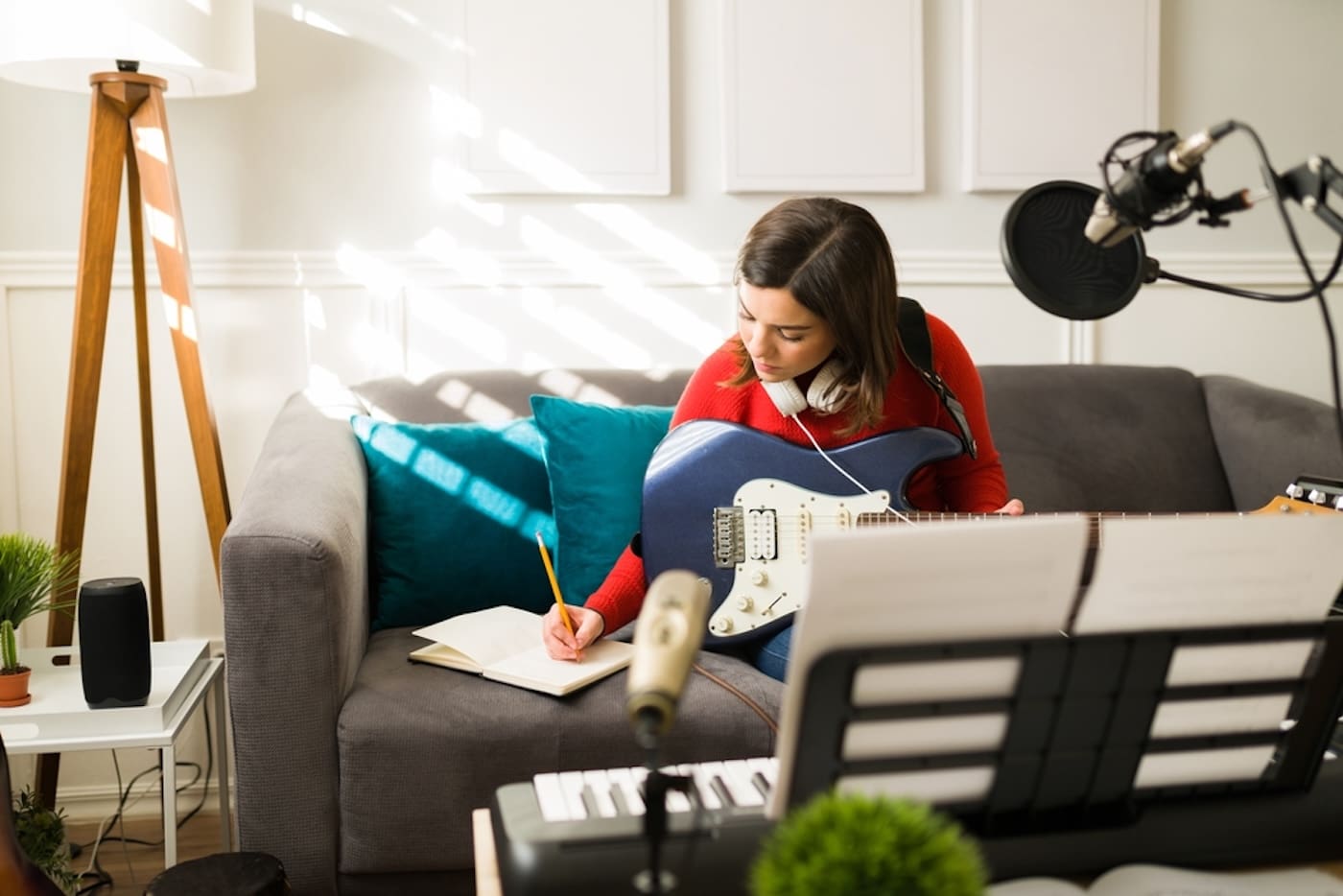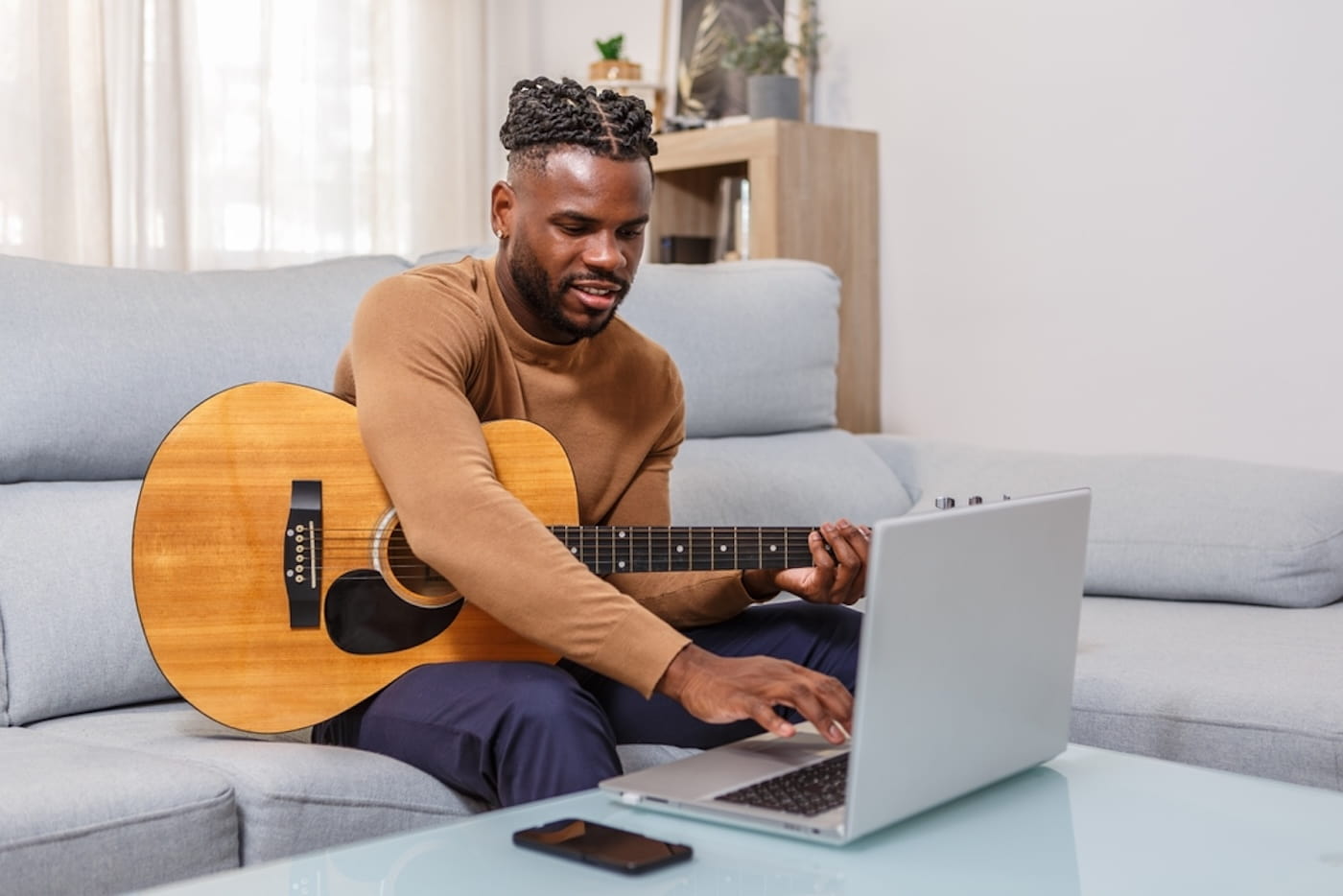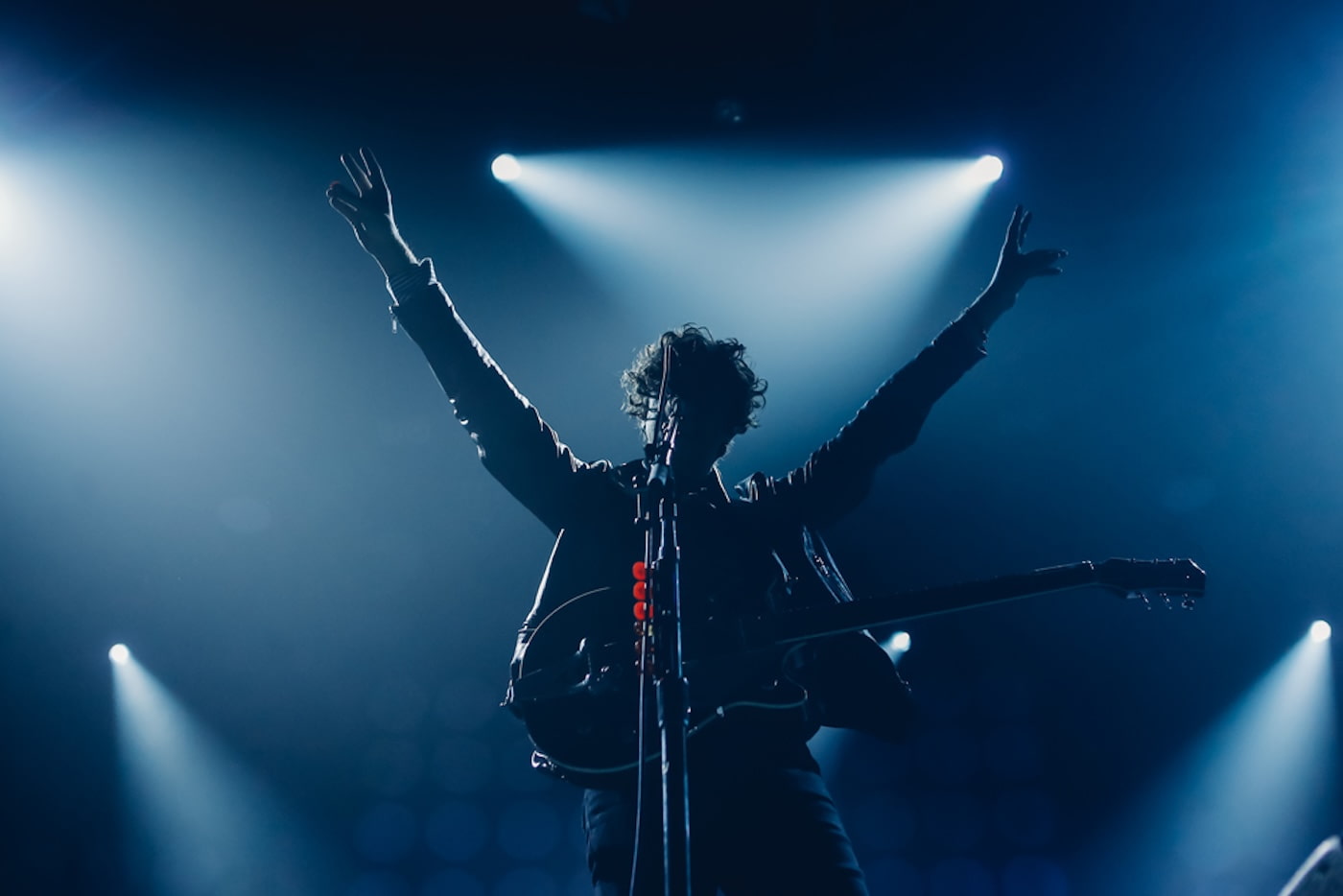
Knowing how to get gigs as a musician is a vital element of performing to audiences who’ll appreciate your style.
From open mics in your local bar to multi-act festivals, playing your new music live is a thrilling experience that drives your career.
This guide explains how to find venues interested in your act and establish a strong reputation among industry professionals to help secure more gigs.
Get Early Access
To Promo Hype
What Is A Music Gig?
A music gig is a casual expression relating to a live music performance by solo artists or bands in various venues.
The expression dates back to the American jazz scene of the 1920s, during which time artists referred to performances as “gigs.”
Ranging from intimate events in coffee shops to large-scale concerts in arenas, music gigs are a core source of income for musicians.
Many successful independent artists find their break performing at gigs, capturing the attention of record label A&R representatives.
While the rise of digital streaming has impacted the state of the live music industry, gigging remains a necessary activity for artists.
Recommended read: A complete guide to music royalties.
How To Get Gigs As A Musician In 2025: Step-By-Step
If you’re hoping to land your first gig or revive your band for an upcoming tour, you’ll need to adopt a proactive approach.
Follow this step-by-step guide to getting gigs as a musician, from creating an online presence to reaching out to venues.
Step 1: Set Up A Professional Website
Building a strong online presence is crucial for all musicians seeking to establish a career and secure more gigs.
A professional website is often the first port of call for venue owners and agents, helping them decide whether to book gigs.
This means taking the time to make everything look polished and professional, with precise contact details and links to social media.
It should also include high-quality photos and videos of previous gigs that instantly capture the visitor’s attention.
If you’re working from a home recording studio, you can include shots of the band in recording sessions and other material.
Electronic music producers can add value to a website by sharing music production tips and other resources with fans.
Once your website is ready, include a link to it on all communications and update visual assets as your music career progresses.
Step 2: Use Social Media To Gain Exposure
Social media accounts are reliable platforms for promoting music gigs, upcoming releases, and other events.
If you aren’t already on X, Facebook, and Instagram, you should set up accounts and connect with fans and local musicians.
Facebook event planners can be used to gauge attendance levels and link to websites where attendees can book tickets.
Social media accounts can also be used for paid promotions, such as pushing upcoming events to Facebook users in your area.
While it can be challenging to go viral on TikTok, it pays to post content across all channels and establish a strong online presence.
By sharing your musical journey with fans, you can drive ticket and merchandise sales directly to your target audience.
It can also help gather feedback, engage with fellow musicians in your city, and ultimately land more gigs.
Also read: A beginner’s guide to music production.
Step 3: Create An Electronic Press Kit (EPK)
Electronic Press Kits (EPKs) are widely used by creatives across all sectors, including artists and bands, filmmakers, and photographers.
An EPK for musicians should contain a variety of assets, beginning with an introductory biography and up-to-date contact information.
This can be complemented with a selection of visual and audio assets that highlight your particular style and level of experience.
If you’ve created a music video, you can include it in your EPK, featuring footage of audience members responding to your performance.
You can tailor a specific EPK to a particular client, such as when pitching for corporate events or private parties.
It’s also recommended that you trademark your band name to protect it legally if another band uses your name.
As you gain more experience playing live, update your EPK to include new videos and photos of gigs that give a good impression.
Step 4: Network With Other Musicians
Writing and recording music is inherently sociable, with many artists connected to musicians and performers in their area.
These networks can be used to find gig opportunities, whether seeking advice or hosting live performances with other musicians.
You can collaborate with other artists to brainstorm local bars and music venues that might be interested in hosting your musical acts.
If you’re a solo act, consider partnering with other musicians in a supporting role or as part of a multi-act lineup.
The more gigs you perform, the stronger your network will become, creating additional opportunities for gig slots at local shows.
Step 5: Gain Experience At Local Venues
While headlining at a major festival is an excellent goal, for most musicians, setting a more realistic goal is recommended.
Those looking to land their first music gig will find more opportunities to do so at local bars and music venues.
You can start by compiling a list of local venues of interest and then contact them with links to your website and social media accounts.
Attending gigs by other artists at these venues will give you a clearer idea of the setup used and their preferred musical style.
If you don’t have enough songs for a complete gig, consider joining the venue’s list of opening acts to test the waters.
Once you’ve contacted smaller venues and landed your first gig, consider any constructive criticism to improve your next performance.
Get Early Access
To Promo Hype
Step 6: Reach Out To Booking Agents & Promoters
Many independent artists lack the professional experience and contacts to guarantee regular, well-paying gigs.
Reaching out to booking agents can help overcome this barrier, providing access to a network of venues seeking new artists.
Booking agents represent acts across all popular music genres, earning a commission or taking fees for successful bookings.
They also collaborate with promoters to market upcoming gigs online and in real life, liaising with music industry journalists.
By reaching out to booking agents and seeking representation, artists can focus on refining and perfecting their performance.
Step 7: Consider Performing For Free
Musicians who are struggling to land gigs often choose to perform at events for free to gain experience and exposure.
While this is a common tactic for new artists, established acts can also benefit from giving free performances.
For example, performing at charity events can bring additional attention while also raising money for a valuable cause.
Charity concerts can generate substantial sums of money, with high attendance levels and overwhelmingly positive responses.
It’s an excellent option for new acts to reach otherwise inaccessible audiences with lower risks for the venues.
Step 8: Submit Music To Radio Stations & Podcasts
Successful radio station DJs and podcasters play a pivotal role in the music business, promoting new acts to their audiences.
Many musicians seeking to build their reputation submit music to radio stations in the hope of gaining widespread exposure.
Each radio station has specific procedures for submissions, so check to see what’s expected before sending original music.
You should also ensure your music sounds polished and professional, paying for mixing and mastering services if necessary.
If a station picks up your music, reach out to see if they’re available for interviews, and use these opportunities to promote your upcoming gigs.
Learn more: How to mix music.
Step 9: Contact Venues You Admire
While local venues are likely to respond favorably to your emails, that doesn’t mean you should restrict your outreach.
If you have a shortlist of top-tier music venues you’d love to perform at, there’s no harm in sending your information.
Many acts, ranging from top music producers to iconic bands, began their careers at popular underground venues.
If you receive rejections, they can still provide insights into the music industry and what is expected from professional musicians.
Step 10: Distribute Your Music Online
Distributing music online is a reliable way to make money as a music producer, singer-songwriter, or band.
In addition to generating revenue, digital music distribution can also be used to promote live music gigs to your fan base.
Artists can utilize platforms like Spotify to share information about events, including links to websites where they can book gigs.
The best music distribution services streamline the process of uploading music to Apple Music, Spotify, TIDAL, and more.
Musicians can utilize these services to gauge the popularity of their tracks and play music that resonates with their audience.
Setlist Best Practices
Certain qualities transform an average live music performance into something truly unique and memorable.
Here are some best practices to consider when creating and performing a setlist at a live show:
- Showcase your professionalism: Becoming a full-time musician requires a level of professionalism, both in your performance and off-stage. There may be record labels looking for artists in the audience, so present yourself accordingly throughout the gig.
- Rehearse your set thoroughly: Stage fright and other factors can quickly derail a performance, but thorough rehearsal can minimize this risk. The better you know your material, the more relaxed and confident you’ll appear on stage.
- Create a musical arc: The best gigs take the audience on a journey, telling a story in the songs they perform. Take the time to consider the structure of your gig to capture the essence of this concept.
By performing at the top of your game, you’ll increase your chances of getting signed to a record label and reaching new fans.
Trending: Music publishing 101.
Top 5 Tips For Landing More Gigs
The step-by-step guide above outlines a range of processes you can undertake to increase your chances of landing gigs.
Here are some additional tips to make landing gigs much easier:
- Create a demo: A dedicated demo targeting a specific venue can significantly increase your chances of capturing their attention. Ensure your communications are always personalized, researching the event beforehand.
- Hone your communication skills: Clear communication is the key to working with venue owners and promoters. It also applies to interacting with the audience, whether telling stories or engaging in banter.
- Perform at open mic nights: Local venues frequently host open mics, providing excellent opportunities for impromptu live performances. Keep track of upcoming open mics at your preferred local bars and attend them whenever possible.
- Apply for music grants: If you’re a gigging musician or band with a track record, you may be eligible for one of many music grants. Check the application criteria and, if successful, reinvest the money into instruments and other gear.
- Always follow up after events: Feedback is key to growth, whether from booking agents, venue owners, or your core fan base. Always follow up after each event to gauge the reception and improve your performing style.
By honing your musical abilities and performing style, you can build a consistent reputation that attracts new gigs.
Frequently Asked Questions
In case you still have any queries surrounding the concept of gigging, here are answers to the most commonly asked questions:
1. How Much Should You Charge For A Gig?
Band and artist fees for gigs vary wildly, influenced by the venue type and capacity, the artist’s level of fame, and industry averages.
When setting your prices, compare your profile to similar acts, read other artists’ riders, and consider your travel and other expenses.
2. What To Wear At A Gig?
While there are no fixed rules about what to wear at gigs, dressing to impress will help leave a lasting impression.
You don’t have to mimic the iconic outfits of famous artists, but select a wardrobe that captures your personality and style.
3. How To Get Gigs Online?
There are many excellent online resources for finding gigs, with multiple booking sites available for use.
The booking site Bandzoogle has helped artists earn $100 million in direct-to-fan sales, so consider this and similar platforms.
Summary
Gigs play a crucial role for artists and bands to earn income while promoting their music to a live audience.
Combined with music and merchandise sales, revenue from gigs enables you as a musician to transform your passion for music into a career.
By applying the advice in this guide, you can land more gigs at bigger venues with increasingly larger crowds.
Get Early Access
To Promo Hype
Join Promo Hype
